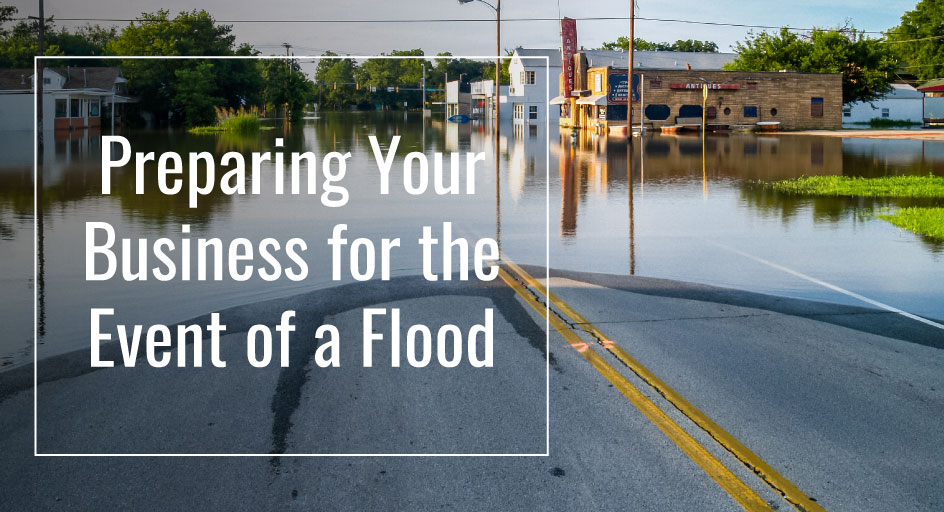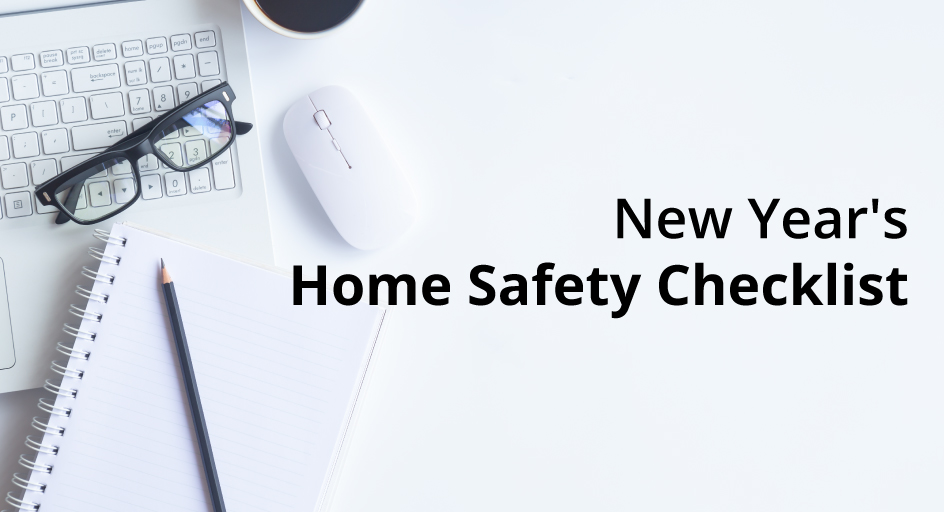Just like your home, your business can flood and potentially experience extensive damage. However, your business has a completely different set of risks than your home does. After a flood in your place of business, you could experience loss resulting from damage to records, inventory, equipment, and technology as well as other valuable property and assets. You also face a potential loss of business income in the time it takes to restore your facility – not to mention the cost of debris removal, cleanup, and restoration. Business owners can mitigate risk by developing a flood disaster plan and, of course, by having the proper insurance coverage in place.
Flood Damage Is Serious Business for Your Business
Flooding can be caused by many events, including heavy rainfall, overflow from rivers or ponds, or a breach in a levee or dam. Often, flash floods can occur with almost no warning. In regards to damage, floods do more than simply make everything wet. Flooding can cause structural and electrical damage. The flood water itself often contains sharp debris like metal or glass fragments or hazardous, unsanitary matter, and this water can contaminate anything it touches. Of course, if employees are present at the time of the flooding, their lives can also be in great danger.
Ask Your Agent About Available Insurance Coverage
Most standard commercial policies do not cover flood damage. However, some carriers offer coverage that is specifically tailored for business floods. The majority of these policies are provided through the National Flood Insurance Program (NFIP), which is managed by the Federal Emergency Management Agency (FEMA). The NFIP only covers commercial property, so you will need to ask your agent about adding flood-specific business interruption coverage to protect your operation against loss of income.
Create a Comprehensive Workplace Flood Disaster Plan
One of the most important ways you can prepare your business for the event of a flood is to keep copies of your insurance documentation and other vital documents in a location that will be safe from any potential flood damage; you can even keep these documents off site if you are able. In addition to important documents, you will want to keep a backup list of all employees’ contact information. The next step is to assess the risks your building faces – check all walls and seams for cracks, move valuable items from bottoms floors if possible, and consider installing a sump pump to help prevent water from getting inside your building. Finally, in the event of an emergency during work hours, you will need an evacuation plan that all employees are trained in.
In the Event of a Flood…
You will be grateful that you have insurance to lessen the impact of the damage. Reach out to your agent at Carnal Roberts Agency today to find out more about your options to get covered.











According to a study by the Insurance Information Institute, around one in 250 insured homes files a theft claim each year. Although this is not the most common claim, it is significant enough that insured homeowners should be looking into their options for getting the best home security. Technology is constantly changing and improving, and there are now some rather impressive and very effective systems available to protect your home and help you avoid property damage theft claims.
Smart Doorbells
This is not your average doorbell. A smart system features a camera that can show you who is outside your door – even if you are not home. Many smart doorbells also allow the homeowner to speak to doorbell-users via intercom. Since thieves will often ring doorbells to check if a home is occupied, being able to see and speak to any visitor, threatening or not, is an attractive security advantage. If you are able to respond to the potential thief, making them think you are home, they may well leave your house alone.
Smart Locks
In our modern age, no one should be leaving a spare key under a doormat or plant. These common hiding spots are the first place a burglar will look, and unless you check the spot every day your key could be stolen, copied, and returned without you ever knowing. A smart lock system gives you the ability to lock and unlock your exterior doors from anywhere at any time. Many systems allow you to check the status of your locks remotely, and some will alert you to any attempt to tamper with the lock. You can also create codes for people you need to let into your home. It is important to note that your smart lock system will need strong encryption and two-factor authentication (such as a passcode and a fingerprint) in order to be safe from hackers.
Video Monitor Systems
Similar to smart doorbells, a video monitoring system allows you to check up on your home even when you’re far away. However, these systems take the surveillance a step farther since they can monitor any areas of your home that you wish – your only limitation is where you can set up a camera! If you want to install cameras that will cover the entire perimeter of your home, you can do so, and you’ll be safer for it. Some video monitoring systems even allow users to set up virtual boundaries and the system will alert you if the boundary is breached.
Full-Service Security Companies
There are many companies, large and small, that offer full-service security systems. These companies will often install the system for you and take care of most of the monitoring themselves. If you don’t feel comfortable with the DIY approach to home security or are not able to access something like a smart doorbell camera from your cell phone, a full-service company may be a good option for you.
A Final Note
Oftentimes, insurance carriers will offer discounts on your monthly premium for a home that has security systems. You will need to make sure that the system you have or intend to purchase is eligible for a discount from your carrier. Give Carnal Roberts Agency a call to speak to your agent about this, and get on your way to saving money and staying safer.